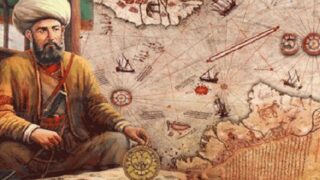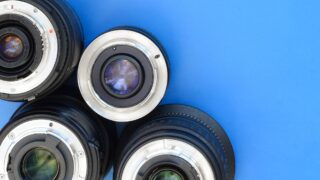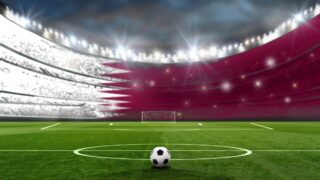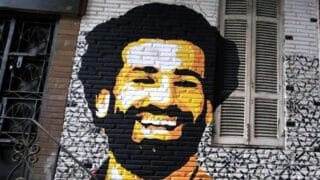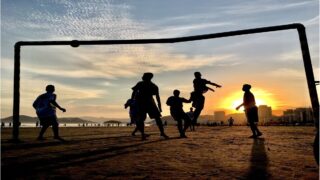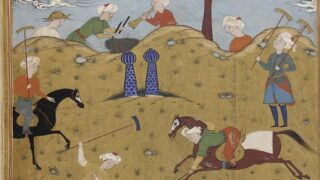The Muslim physicians understood the sport and its importance in health preservation, strengthening the body, and disease prevention. They articulated this in their medical literature as they rely on it in their prescriptions. They discussed some sport exercises and stated their benefits to the limbs, as they mentioned the types that fit different ages and how seasons of the year influence them.
Ibn Khaldun discussed a strong relationship that exists between medicine and sport, the influence of places on exercising or not exercising, and the effect of that on human health, emphasizing that abstinence from exercising is a cause of seeking doctors’ attention, drugs, and treatment. He made a comparison between the people who reside in the village and those who reside in the city saying: “exercising is lacking in the residents of cities because they are always stable and have no engagement in sport. Thus, it has an impact on them. In addition, cities are common with a lot of diseases and the more they fall sick the more they need medication. Afterward, he talked about the health of the village residents which is an effect of their rigorous movements and exercise. He said: “they exercise a lot as a result of frequent movement on horse riding, hunting, seeking their needs, or for their normal work for livelihood, all of which contribute to proper digestion and prevent constipation. With this, their body system becomes better and far from illnesses. Thus, the need for medication amongst them becomes less which is why physician is usually not found in villages”. This is why there is a contemporary thought in Islamic medicine which tries to link sport with health.
Sport is prevention and cure
Muslim medical practitioners talked about sport, it’s types, and the types that match different ages. Among those people is Aly bn al-Abbas who was popularly known as “Magi” in his literature “as-Sina’atut TIbbiyyah”, the book that is considered one of the first literature that touched on that relationship. Aly emphasized the importance of exercise in health maintenance, and that its benefit is achievable if it is done before eating; because it strengthens the limbs and it helps in burning unwanted fats in the body. He also warned against exercising immediately after eating so as for the food not to settle inside the stomach before it digests.
As for the physician “Ali bn Ridwan al-Misri” He exercised for thirty years without stopping due to its importance. He wrote while he was in his sixties: “I commenced practicing my profession in a way that gives me satisfaction since the time I was thirty-two years till date the same way I began exercising which protects my health. I used to eat after taking a rest from an exercise in order to maintain my health.
As for the Iraqi physician “al-Baladi” who authored a well know book titled: “Tadbirul Hubala wal Atfal wal Sibyan wa Hifz Sihhatihim wa Mudawatul Amradul ‘Aridah lahum”, he spoke about children’s exercise and its importance in ensuring sound health and growth, likewise the type of exercise that suits the children and the type that does not suit them. He said: “exercises are of three types, this is because an exercise is simply regarded as movement of the body of which it could emanate from ourselves, or from other things as it could be ensured through medication. As for the movement of our body that is caused by something else like that which happens as a result of horse riding, ships, cradles, mats, swings, and our hands, they are all not suitable for everyone at all times. The exercises that are easily practiced and suitable for children from all these are those that are moving in cradles while on the mattress, from hands, and those that are similar to those provided they are still children.
As for ‘Al-Baladi” physician, he alluded to the importance and the need for a pregnant lady to practice certain exercises in order to maintain her health, the health of her fetus, and to ease the delivery. He said: “it is important for a pregnant lady to engage herself frequently in walking, carrying baby, grounding, washing, kneading, baking, spinning and other similar works. This is because, movement and exercise strengthen the body, improve the instinctive heat and reduce or remove waste products from the body. they also aid digestion. It is good to note that exercising hands is preferred to other forms that were earlier mentioned.
The Muslim physicians who discussed the exercise touched on the connection between walking exercise and sound health. Likewise, prevention of illnesses and aging. A good number of them discussed this such as “Abu Zaid Ahmad bn Sahl al-Balkhi” (322A.H – 943AD) in his book “Masalihul Abdan wal Anfus”, part of what he said was: “surely, one of the things needed to maintain sound health is walking exercise, riding in a normal and moderate way for they are excellent substitutes for medications and they are more beneficial”. this statement is in conformity with what “Ibn Sina” said in his literature ‘al-Qanun’ that walking is one of the pain relievers. He said: “one of the pain relievers is gentle walking for a long time”. In a study on “ar-RIyadatut Tibbiyyah fi turathul Islami -i.e., medical exercise in the Islamic heritage”, there is a statement about the use of sport exercises as medical treatment or what could be called ‘sport medication’
Sport between Ibn Sina and Ibn Hubal
Among the greatest physicians in the Islamic civilization who wrote on the relationship between the sport and the medicine was “Ibn Sina” (d. 427 AH – 1037AD) in his literature “al-Qanun”. And in the review of the book titled: “At-Tarbiyah al-Riyadiyyah fi Fikr al-Failasuf Ibn Sina’” Dr. Ismail Khalil Ibrahim mentioned that Ibn Sina touched on the movements of babies and their exercises, the exercise of children, types of exercises, moral and social benefits that those who practice exercises derive, likewise, issues related to health and skill benefits of sports. Among the issues he treated was “light sports” which are basically, plays that do not require except little energy and are far from aggression energy which at the same time give pleasure and happiness to the body. It is as if Ibn Sina’ was talking about physical and mental healing through consistent practice of light and amusing sports.
Of those issues associated with children’s sports, Ibn Sina’ advised that a child should move from one exercise to another and not stick to one exercise. This is to ensure the achievement of its benefit for him and also to ensure skills and talent development. He was of the view that every age in life has a peculiar sport that is capable of benefiting that particular age. He said: “every individual has a sport that suits him. In other words, a weak sport is suitable for a weak body, and a strong sport is suitable for a strong body. Hence, beware that everybody has a sport that is suitable for him”
The study on sports by Muslim physicians continued with the physician ‘Ibn Hubal” al-baghdadi, who was among the famous scholars who spoke about the sport and its connection with medicine. In his book “al-Mukhtar fil TIbb”, he said: “sport is one of the pillars of health maintenance if a moderate dose of it is practiced it suffices from taking medications. And a moderate sport flushes food remnants and aids the waste products getting out through d proper channel. It calms down the instinctive heat and prepares the body to receive the meals as it strengthens the muscles and the nerves.
Ibn Hubal also touched on the intended and non-intended sports. That is the sport that people practice through their gentle and casual movements which are helpful, and that which a person intentionally practices knowing realized its benefits and rules. The key things he emphasized are the identification of the sports that parts of the body need and their health benefits.
The funny aspect of it is that Ibn Hubal talked about the importance of sport exercises for the youth as he talked about the sports that are suitable for different ages. He said: “As for the youth, they must increase their sport activities because fats increase in their bodies due to slow growth. If they practice high-energy sports, they can maintain the slimness of their body through rubbing. As for the elderly, they should stay where there is a moderate breeze and reduce stress and hectic work. As for people of old age, they should be handled gently like kids, they should also be prevented from hard work and stress. Their sport exercise should be a gentle walk if they have the strength, or ridding if they are weak.”. ibn Hubal also talked about “the times and seasons in which exercising is preferred, and he mentioned that the good time for sport varies from one season to the other seasons of the year, as the same applies to hours of the day. He said: “As for the best times for exercising daily, it should be after the food has digested, after waking up from sleep, and also before eating as it is most helpful before the meal because it prepares the body to receive the food as it helps maintain health. It is harmful to exercise after the meal because it moves undigested food to parts of the body and that might cause blockage and complication in the bowels”.
In a study by a scholar called “Naji Mahfuz” a prolonged discussion on the view of Ibn Hubal on the role of sport in maintaining health, types of sports, and how to get the benefit of the sport. He said: “In terms of healing, sport is ranked the same as a drug; because natural health (immune system) filters, through sport activities, harmful substances that cannot be prevented by any other protector, whereas, medication contains some harmful substances and has side effects, as such the natural health (immune system) gets confused in terms of separating the harmful substance from the good ones, and it finally pushes both the good and the bad away in order to prevent the harmful substances contained in the drug.


